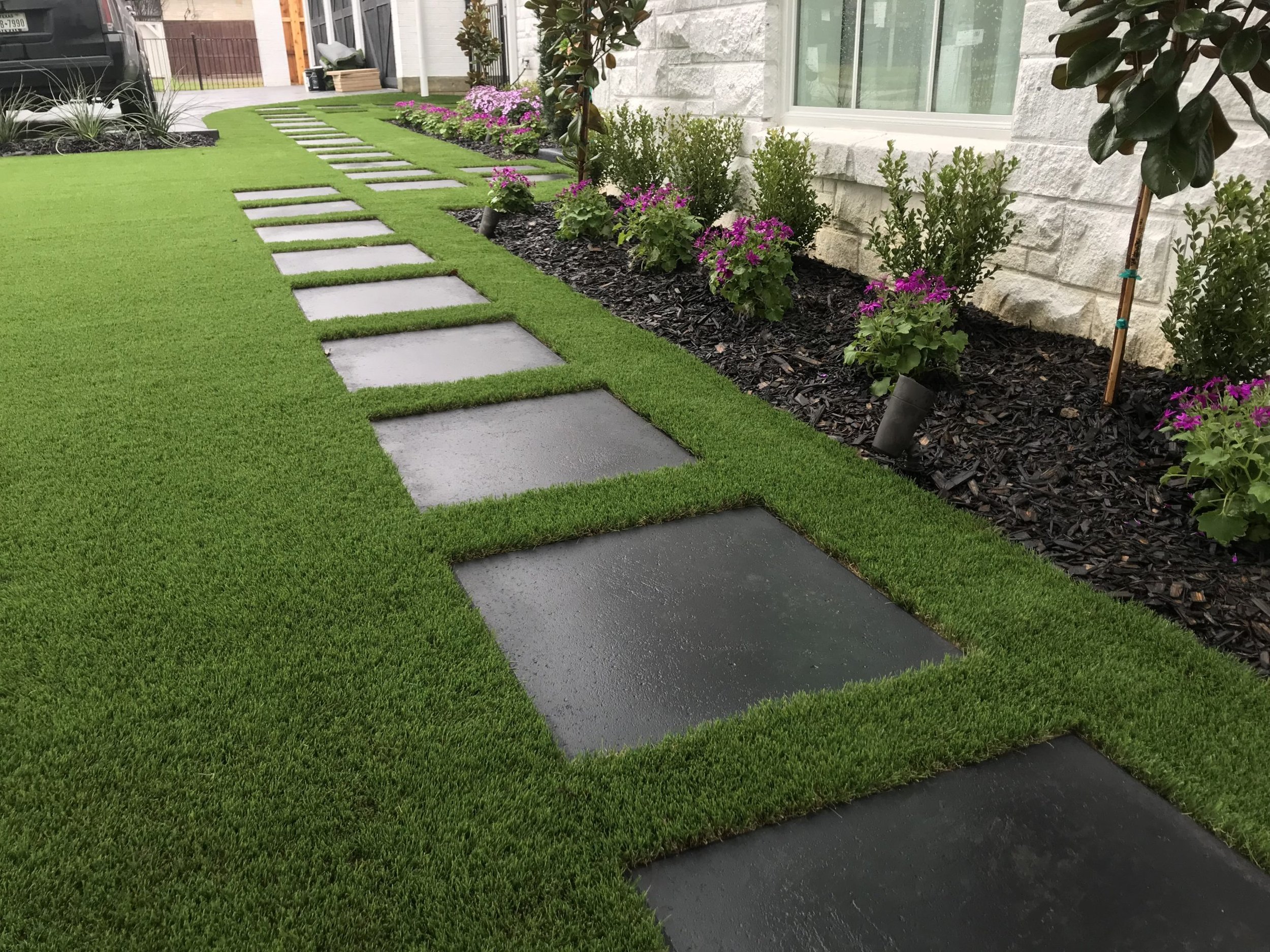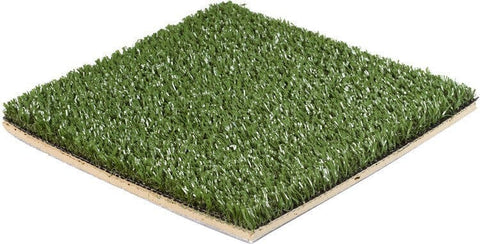Explore the Environmental Advantages of Opting for Synthetic Grass Solutions
The adoption of synthetic grass remedies provides a compelling opportunity to attend to pushing environmental challenges. By considerably decreasing water use and reducing the application of dangerous chemicals, these alternatives not just advertise sustainable landscaping however also secure local environments. The reduced carbon footprint connected with reduced upkeep activities contributes to a much more lasting strategy to land administration. The implications of these benefits prolong past simple preservation initiatives, elevating questions regarding their lasting impact on environment conservation and total ecological equilibrium. Checking out these measurements discloses an intricate interaction worth thinking about.
Water Conservation Conveniences
Among the most considerable benefits of artificial turf is its capability to conserve water. Traditional lawn lawns need significant watering, particularly in areas susceptible to dry spell or water limitations. On the other hand, man-made turf does not require watering, dramatically reducing the total need for water resources. This feature is particularly valuable in arid regions where water deficiency is a pushing issue.
By removing the requirement for regular watering, synthetic grass adds to lasting landscape practices and assists mitigate the ecological influence of extreme water intake. Moreover, the preservation of water prolongs to the reduction of drainage, which can cause soil disintegration and river air pollution.
In addition, the installation of synthetic grass enables communities and home owners to allocate water sources much more successfully, concentrating on crucial usages such as drinking water and farming. The shift in the direction of synthetic grass not just promotes responsible water use but likewise aligns with wider ecological goals targeted at preserving natural sources.
As communities progressively focus on sustainability, the water preservation benefits of fabricated grass provide an engaging situation for its fostering in industrial and residential landscaping projects.
Minimized Chemical Use
The change to synthetic grass dramatically lowers the dependence on chemical therapies frequently utilized in natural yard maintenance. Typical turf monitoring generally entails the application of herbicides, plant foods, and pesticides to promote development and control pests. These chemicals can posture dangers to human health, regional wildlife, and the setting, contributing to dirt and water contamination.
In contrast, fabricated turf gets rid of the need for these hazardous substances. By minimizing the launch of artificial substances into the community, artificial grass advertises much healthier soil and water systems.
Furthermore, the lack of chemical runoff connected with synthetic grass setups assists protect regional rivers from contamination, supporting marine life and maintaining biodiversity. Phoenix turf companies. As areas progressively focus on sustainable methods, choosing for man-made grass presents a sensible remedy that straightens with ecological preservation objectives. Through this shift, homeowner can appreciate lush environment-friendly spaces without jeopardizing eco-friendly health, paving the way for a much more sustainable future
Lower Carbon Impact

In addition, the installation of artificial turf look at here can lead to substantial water conservation. All-natural grass call for substantial amounts of water for watering, which not just contributes to the carbon impact connected with water removal and therapy however likewise stress neighborhood water resources. In comparison, synthetic grass requires very little maintenance, needing no watering, consequently considerably reducing water usage and its associated energy expenses.
Furthermore, the durability of synthetic grass adds to its decreased carbon effect. With a life-span of as much as 15 years or even more, the need for regular substitutes is reduced, leading to less waste and lower energy intake in production and taking care of conventional yard alternatives. On the whole, synthetic grass offers a lasting choice for ecologically aware landscape design.
Habitat Preservation
Environment conservation is a vital consideration in the dispute over landscaping selections, specifically when comparing man-made grass to all-natural turf. Natural lawn lawns typically require substantial upkeep, consisting of the usage of pesticides, fertilizers, and herbicides, which can detrimentally influence local environments. These chemicals can leach into the dirt and rivers, hurting native vegetation and fauna and disrupting local environments.
Synthetic grass removes the demand for dangerous chemicals, therefore protecting neighboring wildlife and maintaining the integrity of bordering environments. The setup of fabricated grass can lead to the conversion of former turf locations right into more biodiverse landscapes, such as pollinator gardens or native plant areas, which can support local wild animals.
Ultimately, the shift to man-made lawn not only preserves water and minimizes upkeep initiatives yet likewise cultivates an extra harmonious relationship between human tasks and the natural surroundings, promoting habitat conservation at the same time.
Long-Term Sustainability
Long-lasting sustainability is an essential factor in reviewing the benefits of synthetic grass over standard turf lawns. One of the most significant benefits of synthetic grass is its durability; it can last as much as 15-20 years with marginal maintenance, whereas natural grass requires frequent reseeding and replacement. This longevity lowers original site the need for consistent resources, such as water, fertilizers, and pesticides, which are vital for maintaining a healthy yard lawn.
Additionally, synthetic lawn adds to a decrease in carbon discharges related to grass treatment tools. Typical yards commonly need gas-powered lawn mowers, trimmers, and blowers, every one of which add to air pollution. Artificial turf companies phoenix. In comparison, synthetic grass gets rid of the demand for such tools, promoting a cleaner atmosphere
Furthermore, the production of synthetic grass increasingly makes use of recycled materials, improving its sustainability profile. As producers take on eco-friendly practices, the environmental footprint of synthetic grass proceeds to reduce.

Conclusion
The fostering of synthetic grass services presents considerable environmental advantages, consisting of considerable water preservation, lowered dependence on harmful chemicals, and a lower carbon footprint. Furthermore, synthetic grass aids in protecting natural environments by decreasing land disturbance and promoting long-lasting sustainability via making use of durable products. Jointly, these factors underscore the possibility of synthetic grass to add positively to environmental health and provide a viable alternative to traditional landscaping techniques in an increasingly resource-conscious world.
In contrast, synthetic turf does not require watering, significantly reducing the general demand for water sources. By reducing the release of artificial compounds into the environment, man-made lawn promotes much healthier soil and water systems.
Moreover, the setup of fabricated grass can result in substantial water conservation. In contrast, man-made grass requires minimal upkeep, requiring no watering, thereby substantially minimizing water usage and its connected power prices.
